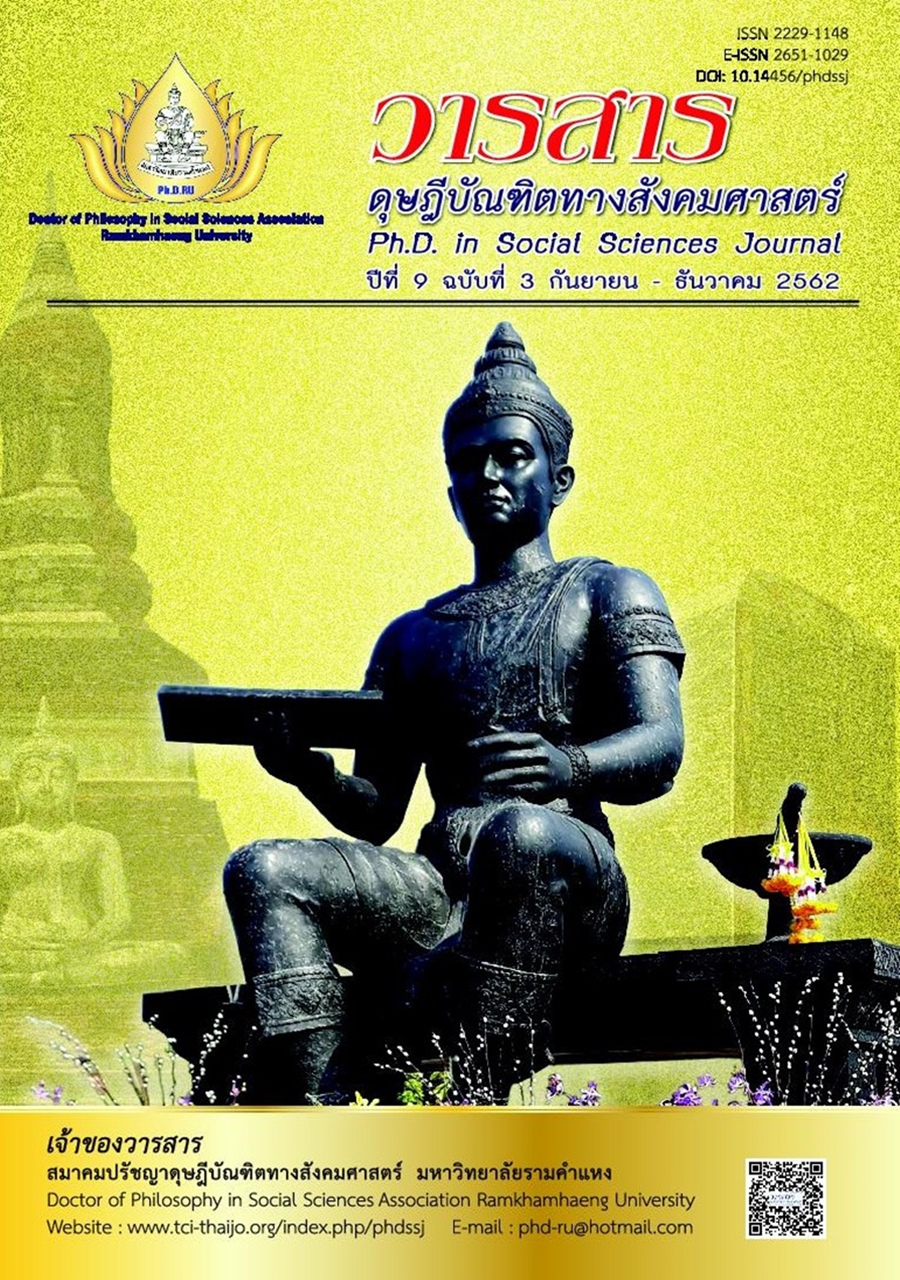The Effects of Customer Satisfaction and Antecedents on the Customer Loyalty of Low-Cost Airline Customers in Thailand
Main Article Content
Abstract
This research aims to Find the model for the development of raw material suppliers in the textile and garment industry in Thailand. And propose strategies to increase operational efficiency. There is a mixed-oriented research model. By quantitative analysis first. With the use of questionnaires with the sample group, namely, administrators and supervisors. Working in the procurement of 400 textile and garment factories in Thailand from 4,133 establishments analyzing data with structural equations And then analyze the qualitative data to explain the results from quantitative analysis with group discussion.
The results of the data analysis showed that the model was consistent with the empirical data in a good manner. With the chi square 168 value (df = 85), p-value 0.051 and RMSEA 0.027. The development factor of the raw material supplier has both direct and indirect influence on the operational efficiency. By passing on the supplier relationship factor to the buyer Which is consistent with the results of qualitative analysis by group discussion The proposed strategy is divided into two parts: (1) Development. The supplier must establish raw materials cooperation. With strict quality control of raw materials And control raw material costs to be competitive (2) Building relationships between suppliers and buyers Must integrate cooperation to meet the needs of customers together.
Article Details
Academic articles, research articles, and book reviews in the Ph.D. in Social Sciences Journal are author’s opinions, and not the publisher’s, and is not the responsibility of the Ph.D. in Social Sciences Journal Philosophy Association, Ramkhamhaeng University. (In the case that research is done on human, the researcher has to be trained in Ethics for Doing Research on Human Training and has to produce the evidence of the training).
References
Angsuchoti, S., Wijitwanna S., & Pinyopanuwat, R. (2014). Statistical analysis for social science and behavioral science research: Techniques for using LISREL program (4th ed.). Bangkok: Charoen Dee Mun Kong Printing. [In Thai]
Data Center and Digital Industry, Thailand Textile Institute. (2019). International trade of Thai textile and garment industry in January 2019. Retrieved from https://www.thaitextile.org/th/insign/industrymovement.php#1 [In Thai]
Department of Industrial Works. (2017). Textile and garment industry data at the end of 2017. Bangkok: Author. [In Thai]
Industrial Information Policy and Service Research Department, Thailand Textile Institute. (2017). Bangkok: Author. [In Thai]
Joshi, S., Kharat, M., Raut, R., Kamble, S., & Kamble, S. (2017). To examine the relationships between supplier development practices and supplier-buyer relationship practices from the supplier’s perspective. Benchmarking: An International Journal, 24(5), 1309-1336.
Leenders, M. R. (1966). Supplier development. Journal of Purchasing, 2(4), 47-62.
Sindhuja, P. N. (2014). Impact of information security initiatives on supply chain performance. Information and Computer Security, 22(5), 450-473.
Su, J. (2013). Strategic sourcing in the textile and apparel industry. Industrial Management & Data Systems, 113(1), 23-38.
Yurarach, S. (2016). Writing research reports in social science and humanities. Bangkok: Vision Prepress. [In Thai]


